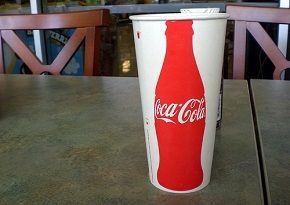Children Kick Sugary Drink Habit - But Has It Affected Obesity Rates?

Somewhere in New York, Mayor Michael Bloomberg has an ear-to-ear smile after a study conducted by the Centers for Disease Control and Prevention (CDC) revealed that the number of U.S. children drinking high-calorie sugary beverages has dramatically decreased.
"These results are also consistent with industry figures that indicate a steady reduction in soda intake among Americans, That's good news," Marion Nestle, Professor of Nutrition, Food Studies and Public Health at New York University, told Reuters Health
"It would be even better news if soda companies weren't trying so hard to make up for the shortfall by marketing harder to minorities, low-income groups and low-income people in developing countries - the very people most at risk for obesity and related conditions."
A research team led by Dr. Brian Kit from the CDC's National Center for Health Statistics used the National Health and Nutrition Examination Surveys for the basis of its analysis. Questionnaires, physical examinations, and at-home interviews were conducted every other year from 2000 to 2010.
Each year, around 8,500 respondents were asked about their daily food and drink consumption, including what kind of beverages they usually consumed.
When research started back in 2000, children between the ages two and 19 were taking in around 223 calories a day from sugary drinks. As of 2010, the same demographic recorded consuming 155 calories a day in sugary drinks.
Among adults, an average of 196 calories a day was attributed to sugary drinks in 2000, which dropped 45 calories to 151 in 2011.
Despite the drop in people consuming sugary drinks, the CDC has reported no significant change in the national average for obesity.
"During our 12-year study duration, obesity prevalence, although high, has largely remained stable," Kit told Reuters Health.
"We know there are wide efforts to reduce sugary drink consumption and we show a reduction in sugary drink consumption. However, we did not look at the effects of specific policies."
The results of this study were published in the American Society for Nutrition's online journal Nutrition.
Source: Kit B, Fakhouri T, Park S, Nielson, S, Ogden, C. Trends in sugar-sweetened beverage consumption among youth and adults in the United States: 1999-2010. Nutrition. 2013.



























